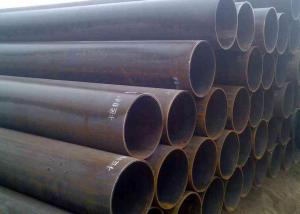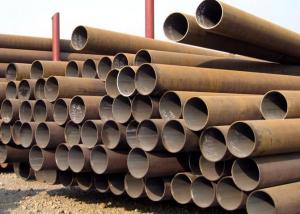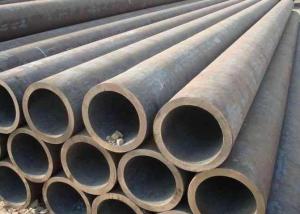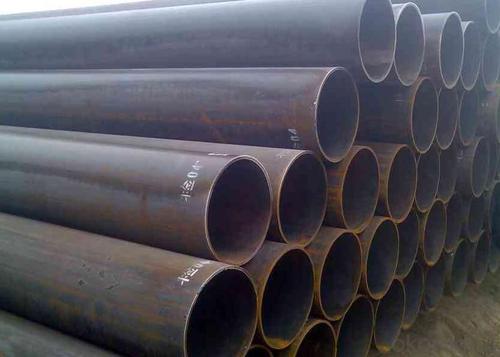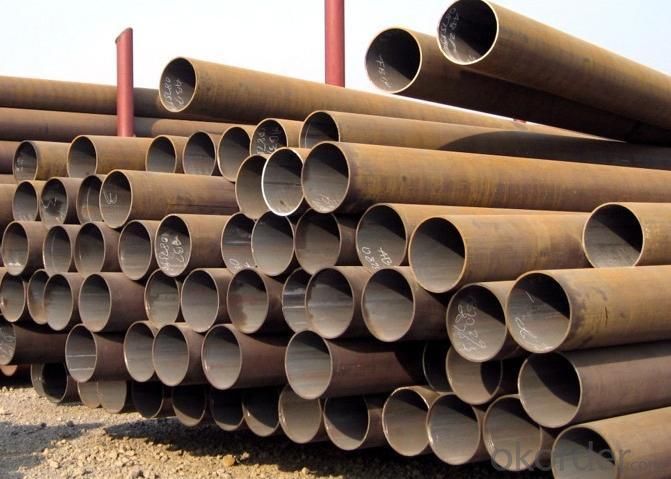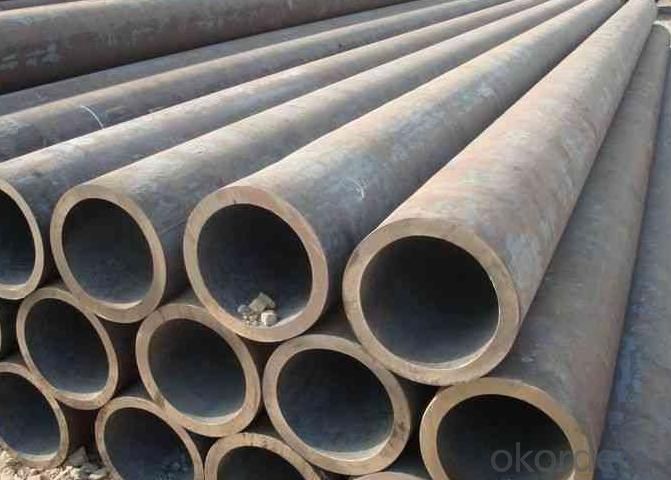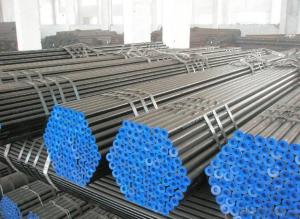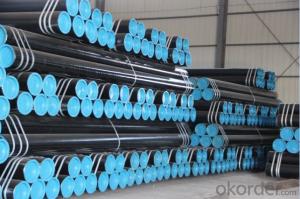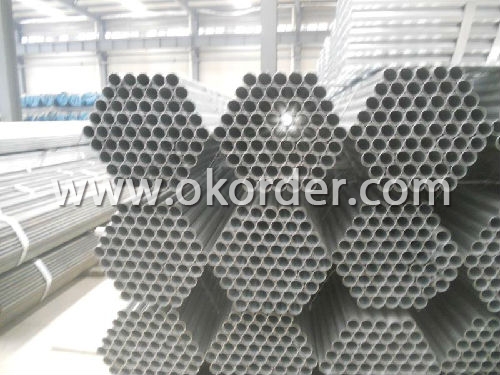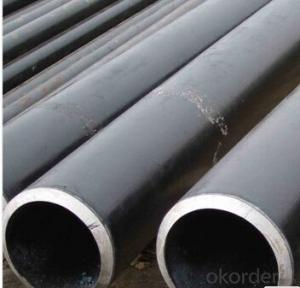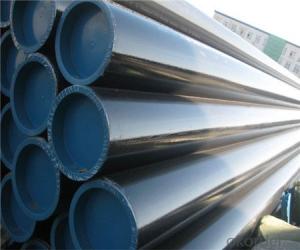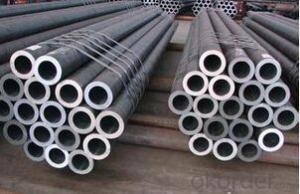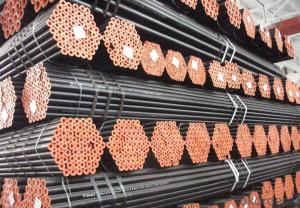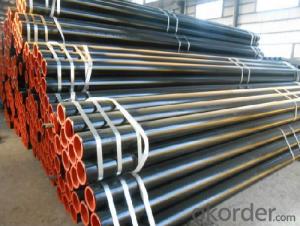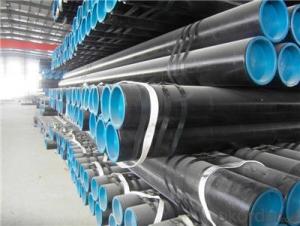GB3087 Seamless Steel Tubes and Pipes for Low and Medium Pressure Boiler
- Loading Port:
- TianJin Port
- Payment Terms:
- TT or LC
- Min Order Qty:
- 50 MT m.t.
- Supply Capability:
- 5000 Tons Per Month m.t./month
OKorder Service Pledge
OKorder Financial Service
You Might Also Like
| Seamless steel tubes and pipes for low and medium pressure boiler |
| |||||||||||||||||||||||||||||||||||||||||||||||||||||||||||
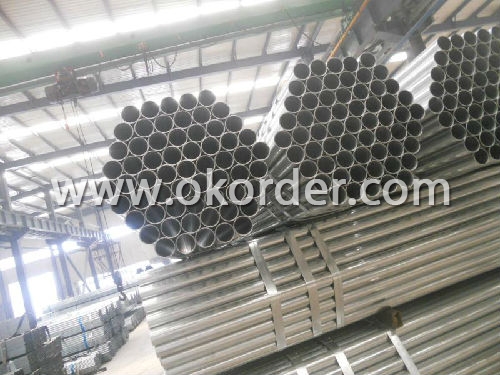
- Q: What is the average cost of steel pipes?
- The average cost of steel pipes can vary depending on several factors such as the size, grade, and quantity of the pipes needed, as well as the current market conditions. Generally, the cost of steel pipes ranges from $500 to $1500 per ton. However, it is important to note that this is a rough estimate, and prices can fluctuate based on factors like demand, location, and quality. It is recommended to reach out to suppliers or manufacturers for more accurate pricing information based on specific project requirements.
- Q: Can steel pipes be used for oil and gas well production?
- Yes, steel pipes can be used for oil and gas well production. Steel pipes are commonly used in the oil and gas industry due to their strength, durability, and resistance to corrosion. They are able to withstand high pressure and extreme temperatures, making them suitable for transporting and extracting oil and gas from wells.
- Q: How are steel pipes used in the manufacturing of boilers and heat exchangers?
- Steel pipes are used in the manufacturing of boilers and heat exchangers primarily for their excellent strength, durability, and heat resistance properties. These pipes are used to carry hot fluids and gases, such as water and steam, throughout the boiler or heat exchanger system. The steel pipes provide a reliable and efficient means of transferring heat and maintaining the desired temperature within the system. Additionally, their corrosion resistance ensures long-lasting performance, making them an essential component in the manufacturing of boilers and heat exchangers.
- Q: Difference between seamless steel pipe and welded pipe
- Welding pipes can be used in water pipelines, gas pipelines, heating pipes, electrical appliances, pipelines and so on.
- Q: How are steel pipes measured and sized?
- Steel pipes are commonly measured and sized based on their outer diameter (OD) and wall thickness. The OD is measured using a caliper or tape measure, while the wall thickness can be determined by either a micrometer or ultrasonic thickness gauge. This information is crucial for classifying pipes into various standardized sizes, such as schedule or nominal pipe sizes, which are widely used in the industry.
- Q: What is the outer diameter and wall thickness of DN40 steel pipe?
- DN40, refers to the diameter of 40mm, that is, an inch and a half, there are welded pipe and galvanized pipe,Ordinary wall thickness 3.5mm wt 3.84kg/mThicken 4.25mm weight 4.58kg/m
- Q: What is lined pipe?
- Pipe lining is a new technology in recent ten years of development, also called composite pipe conveying fluid with different needs, the use of different materials to make the durability of the pipeline inner wall and outer wall of pipeline, to ensure the purity of the fluid, pipeline adaptability, performance is greatly improved, more extensive use.
- Q: What is the difference between seamless and welded steel pipes?
- The main difference between seamless and welded steel pipes lies in their manufacturing process. Seamless pipes are made by piercing a solid billet of steel, while welded pipes are formed by rolling steel sheets and then welding them together. This difference in production methods results in varying levels of strength, durability, and cost. Seamless pipes are generally stronger and more reliable, as they have no welded seams that can weaken the pipe. However, they are also more expensive to produce. On the other hand, welded pipes are more cost-effective but may have weaker points at the welded seams. Ultimately, the choice between seamless and welded steel pipes depends on the specific application and requirements of the project.
- Q: What are the common welding techniques used for steel pipes?
- The common welding techniques used for steel pipes include shielded metal arc welding (SMAW), gas metal arc welding (GMAW), flux-cored arc welding (FCAW), and submerged arc welding (SAW).
- Q: How are steel pipes protected against internal scaling?
- Steel pipes are protected against internal scaling through various methods such as chemical treatments, use of corrosion inhibitors, and regular maintenance and cleaning procedures. These measures help to prevent the formation of scale, which can reduce the pipe's efficiency and lifespan.
1. Manufacturer Overview
| Location | Jiangsu, China |
| Year Established | 1992 |
| Annual Output Value | 60,000Tons |
| Main Markets | Europe and the United States;Canada; India;Bulgaria; South Korea;etc. |
| Company Certifications | API 5L;API 5CT;GB/T19001-2008 idt ISO9001:2008 |
2. Manufacturer Certificates
| a) Certification Name | |
| Range | |
| Reference | |
| Validity Period |
3. Manufacturer Capability
| a) Trade Capacity | |
| Nearest Port | Yan Cheng |
| Export Percentage | 50% - 60% |
| No.of Employees in Trade Department | 400-500 People |
| Language Spoken: | English; Chinese; Spanish |
| b) Factory Information | |
| Factory Size: | Above 110,000 square meters |
| No. of Production Lines | Above 10 |
| Contract Manufacturing | OEM Service Offered; Design Service Offered |
| Product Price Range | Average |
Send your message to us
GB3087 Seamless Steel Tubes and Pipes for Low and Medium Pressure Boiler
- Loading Port:
- TianJin Port
- Payment Terms:
- TT or LC
- Min Order Qty:
- 50 MT m.t.
- Supply Capability:
- 5000 Tons Per Month m.t./month
OKorder Service Pledge
OKorder Financial Service
Similar products
Hot products
Hot Searches
Related keywords
